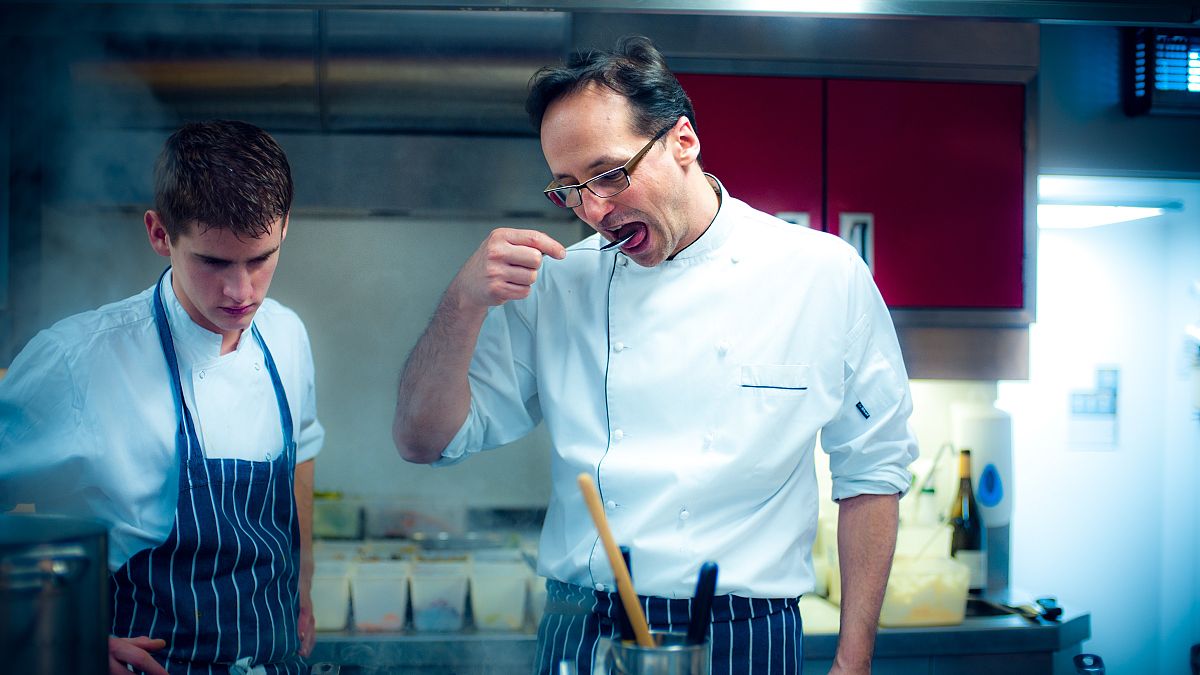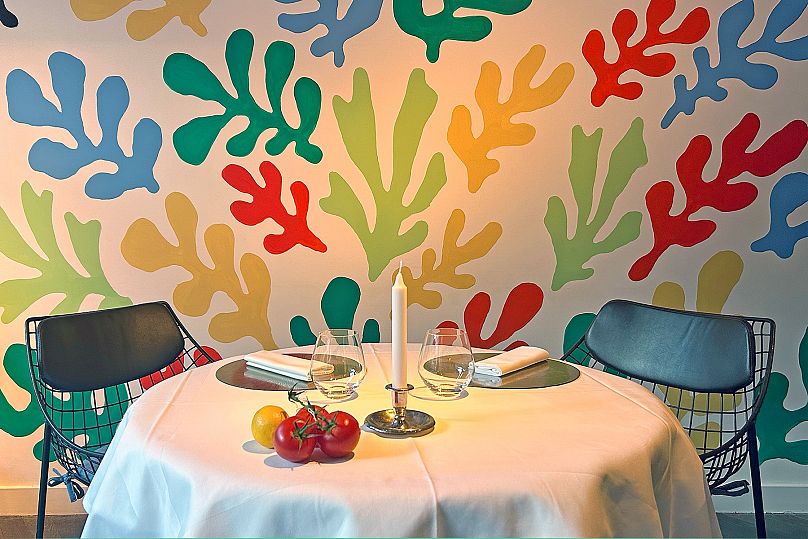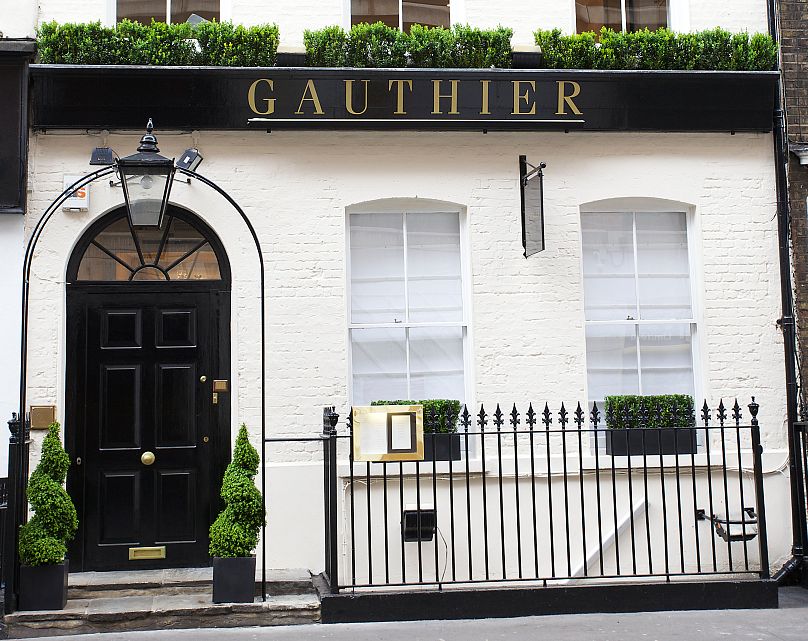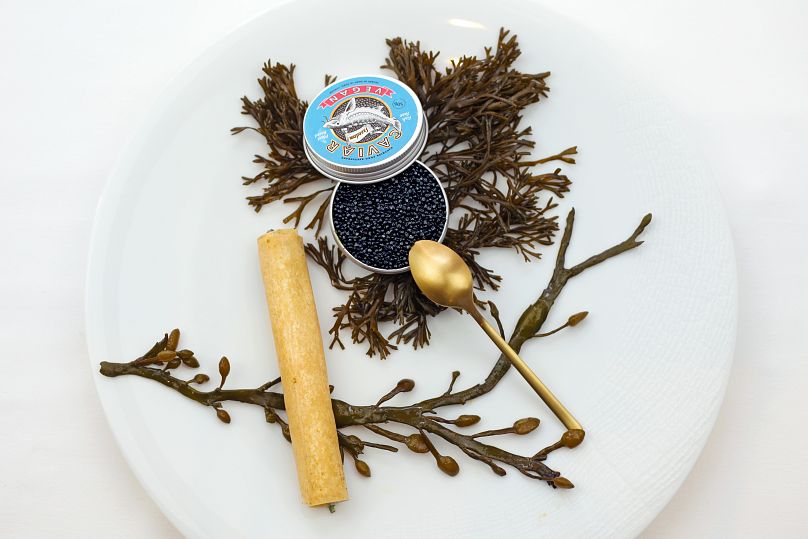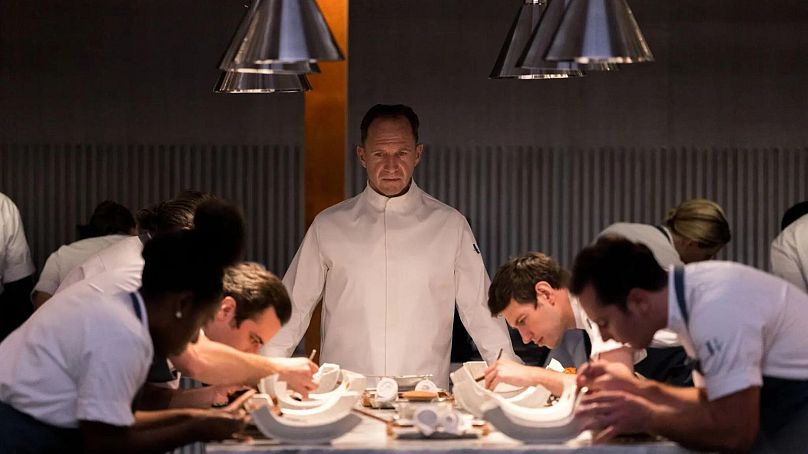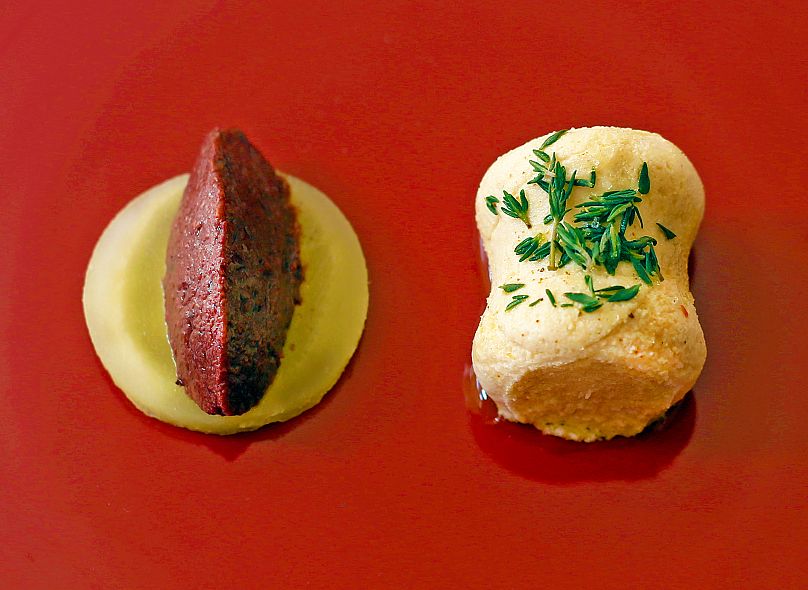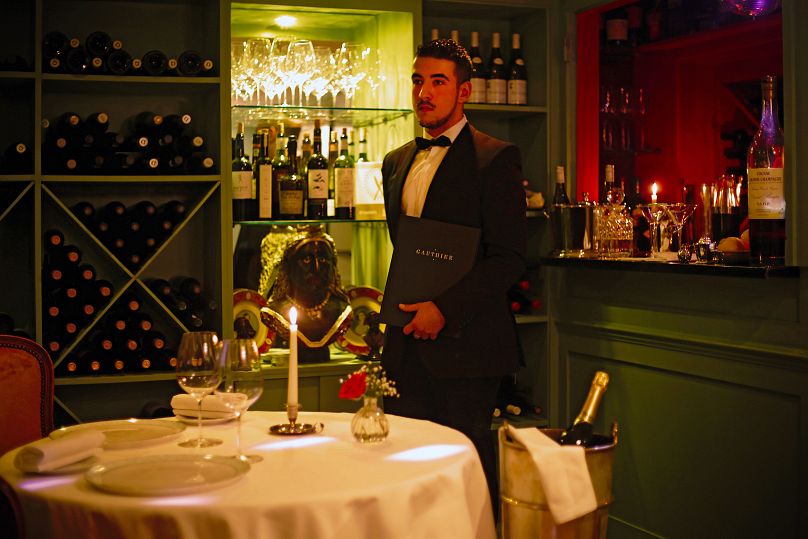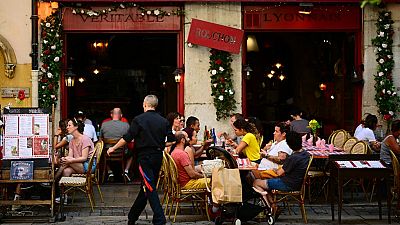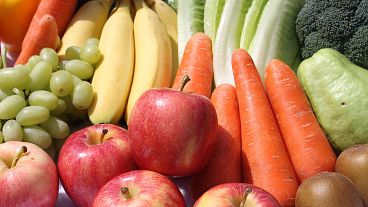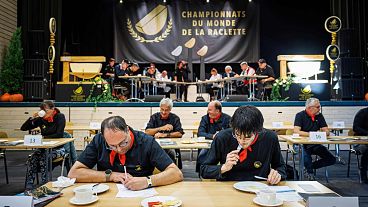After abruptly giving up meat in 2016, Alexis Gauthier began a mission to reinvent restaurant philosophy and infuse French gastronomy with cruelty-free food.
A classically trained French gastronomic chef, Alexis Gauthier has made some of the most delicious meat dishes in the world. At one point, his London-based fine dining restaurant ‘Gauthier Soho’ was serving 20 kilograms of foie gras a week.
Then, in 2016, he went vegan.
“I made the decision overnight and that was it. You know, there was no way back,” Gauthier tells Euronews Culture from his new restaurant, ‘Studio Gauthier’, which sits within London’s BFI Stephen Street building and also houses his ‘123V Bakery’, selling French patisserie with a plant-based twist.
This latest venture is a departure from Gauthier’s previous haute cuisine focus, offering lighter, more accessible options to busy city dwellers - and hopefully converting reluctant carnivores.
"We've got everything covered," Gauthier explains of his eclectic and ever-expanding restaurant portfolio.
"You can spend £20 a head at 'Studio Gauthier', £80 a head at 'Gauthier Soho', £30 a head at '123V' eating sushi or £10 a head having something at the bakery."
At the heart of these culinary pursuits is Gauthier's mission to inspire more ethical industry practices and change the way people think about food.
“We will only change people’s way of eating by offering them an alternative which is as good, if not better, than the animal-based one,” says Gauthier, who removed all animal products from his restaurants in 2021. It was a controversial decision, especially for a Michelin-Star-winning chef running a hugely successful - but previously flesh-favouring - French restaurant.
“My employee told me, ‘What are you doing, are you crazy, do you want us to go bankrupt?! You know I've got children, I've got a mortgage to pay.’ But I knew that somehow, perhaps, it would work.”
Having decided he no longer wanted to profit from the death of animals, Gauthier initially debated whether to change careers completely in 2016, before seeing his philosophical-awakening as an exciting opportunity to reinvent everything.
“That [reinvention] was fascinating. Fascinating for myself, but also for the people I'm working with; for my chefs, for my waiters, and for my customers,” he says.
And so began the daunting - but exciting - task of developing vegan alternatives for ‘Gauthier Soho’, all while remaining true to its essence of French gastronomy. Sea bass was swapped out for soft Swiss chard; previously fishy sauces serenaded with seaweed and saltwater; traditional techniques used to create a phantasm of familiar flavours, cruelty-free.
“We are seriously French. We are seriously gastronomic. And I really do believe we are totally the future,” says Gauthier.
The future of fine dining
The fine dining world has faced increased challenges in recent years, with the pandemic lockdowns and rising cost of living across Europe wiping out many much-loved eateries. Even ‘Noma’ - widely considered the best restaurant in the world - announced its closure in January, citing burnout from producing such high quality food under immense pressure.
A surge in kitchen-based TV shows and films, such as ‘The Bear’, ‘Boiling Point’ and ‘The Menu’, has further highlighted the simmering stress and sometimes abusive, exploitative nature of working in haute cuisine.
For Gauthier, he feels the reason so many fine dining restaurants are struggling is their lack of novelty and purpose, referencing misanthropic chef Julian Slowik (Ralph Fiennes) from ‘The Menu’ as an extreme example of those who lose a personal connection with their skill.
“When I talk to my chefs, I realise for 20 years I've really had nothing to tell them other than be the photocopy of me. And me, I was a photocopy of the chef I've learned from. And they were the photocopy of the chef they had learned from,” says Gauthier, who worked under chef Alain Ducasse at Le Louis XV restaurant in Monaco before opening his very first restaurant, ‘Roussillon’ in London in 1998.
“Being a chef, having a purpose of how I was going to save [animal] lives while doing something totally delicious, wow. It's amazing.”
The global vegan food market has continued to grow, estimated at $16.55 (€15.42) billion in 2022 according to Grand View Research - but it's still a rarity in the fine dining world, where focus remains on meticulously made meats and fish.
While Gauthier has proven through his success that there is a market for vegan high cuisine, he also believes financial fears will continue to hold other chefs back from making such a plunge.
"It's already so difficult to make a living with a restaurant," he explains.
“When you have spent years and years, you know, refining your craft of making the best roast chicken or the best filet of beef or the best sauce with lobsters, it’s going to take a lot [to go plant-based]. But if the fashion industry can do it, there is no reason why the gastronomy industry in France cannot do it."
Is France ready for a vegan revolution?
The concept of fine dining is intrinsically linked to French culture, having originated in 1782 with the opening of what is considered to be the very first haute cuisine restaurant, La Grande Taverne de Lourdes, in Paris.
From boeuf bourguignon to escargot to steak tartare, veganism is very much at odds with traditional French cuisine; a cultural resistance further established by the government recently publishing a decree banning the use of meaty descriptors such as "steak" or "grill" on plant-based products.
"Sometimes I think, oh, maybe to really change things, I should go to Paris without opening more restaurants in London. I should open one in Paris and really do hardcore French gastronomy plant-based. Just to prove a point. Just to start planting the seed, you know," says Gauthier.
"I mean, imagine a world in 50 years, one hundred years where people travel from all around the world to go to France and enjoy the best Quenelle? With the creamiest delicious sauce with the best burgundy wine. And there are no animals on the plate."
Gauthier's vision of slaughter-free service seems all the more possible with the rapid progression of cultivated meat, where companies use stem cells to replicate animal-based foods. Interestingly, there has been a wave of French startups in this area, including Umiami, who developed their own “unique protein texturing technology” and Gourmey, which created a lab-grown foie gras.
The key thing is developing cultivated animal fat, Gauthier believes, which he envisions one day mixing into a mass of 3D-printed plant-based food.
"I don't think it will be called vegan," he says.
"It will be called food, because the combination of stem cells and the ingenuity of the human being; we would be able to eat something that remotely tastes like chicken breast. Maybe actually better than chicken breast."
